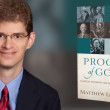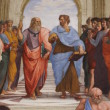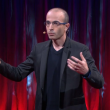What Is the True Understanding of Causality?
by Dr. Dennis Bonnette
Filed under Philosophy

The classical proofs for God’s existence, particularly St. Thomas Aquinas’ Five Ways, employ the notion of causality – both efficient and final. In that context, many misunderstandings arise concerning the true metaphysical meaning of the principle of causality. This article will assume the validity of the metaphysical first principles of non-contradiction and sufficient reason, which were established as true in my previous Strange Notions article on the first principles – and... Read More
Are Metaphysical First Principles Universally True?
by Dr. Dennis Bonnette
Filed under Philosophy, The Existence of God

Today, certain lines of attack against classical proofs for God’s existence, such as St. Thomas Aquinas’ Five Ways, seek to undermine foundational metaphysical first principles such as causality, sufficient reason, or even non-contradiction.1 Such attacks employ, for example, claims that (1) David Hume’s critique of causality is definitive, (2) the existence of the cosmos is simply a “brute fact,” needing no explanation, and (3) modern physics shows that the principle of non-contradiction... Read More
Proofs of God: An Interview with Dr. Matthew Levering
by Brandon Vogt
Filed under Interviews, The Existence of God

In his newest book, Proofs of God: Classical Arguments from Tertullian to Barth (Baker Academic, 2016), leading theologian Matthew Levering presents a thoroughgoing critical survey of the proofs of God's existence for readers interested in traditional Christian responses to the problem of atheism. Beginning with Tertullian and ending with Karl Barth, Levering covers twenty-one theologians and philosophers from the early church to the modern period, examining how they answered the critics... Read More
How Do You Know You’re Not in the Matrix?
by Karlo Broussard
Filed under Man

At the heart of the philosophy of Aristotle and St. Thomas Aquinas is the idea that we come into contact with reality through the senses. But what if our senses are not a reliable source? Perhaps our senses are deceiving us, and everything we perceive isn’t real but is merely an illusion like in the movie The Matrix. Descartes This skepticism of sense knowledge was part of René Descartes’s methodic doubt, which many radical skeptics have adopted. Descartes argued: Whatever I have... Read More
Modern Atheism: Dragging Plato Along Aristotle’s Coattails
by Timothy Gordon
Filed under Atheism

In today's Catholic Church, Platonism and Aristotelianism are often considered equal. It is a dangerous error that hails all the way back to the first neo-Platonists in the third century. Simply put, the true description of reality, rightly recognized by the Catholic Church, is that account given by Aristotle (not Plato!) and confirmed by Thomas Aquinas. But too many Catholics speak of Plato and Aristotle together, as if their metaphysics are identical. They are in fact nowhere near this.... Read More
And This All Men Call God
by Thomas M. Cothran
Filed under God

Wheaton College’s decision to suspend a Christian professor who proclaimed that Muslims and Christians worship the “same God” has sparked a debate among Christians. Despite the dogmatic differences between Christians and Muslims, is the same God the object of our worship and belief? Ours is not the first age in which a Christian culture has clashed with the Islamic world, nor the first in which Western states have lived in fear of violence or occupation. It is not even the first... Read More
Is God Too Complex To Be The Creator?
by Matt Nelson
Filed under God's Nature

Richard Dawkins believes that if the universe began to exist—it was caused by nothing. In a debate with Cardinal George Pell in 2012 he asserted: "Of course it's counterintuitive that you can get something from nothing! Of course common sense doesn't allow you get something from nothing! That's why it's interesting. It's got to be interesting in order to give rise to the universe at all!" He was right about at least two things: to get something from nothing is both counterintuitive and... Read More
Materialistic Dogmas and Bad Conclusions
by Dr. Francis J. Beckwith
Filed under Atheism

St. Thomas Aquinas, citing Aristotle, once wrote: “a small error at the outset can lead to great errors in the final conclusions.” What he means is that given the nature of reason, if any one of your premises is mistaken, no matter how trivial it may seem to your overall project, your conclusions may turn out to be wrong, very wrong. A great example of what St. Thomas means can be found in a TED talk by Professor Yuval Noah Harari. In “What Explains the Rise of Humans?”, Harari... Read More
The Grammar of Existence
by Steven Rummelsburg
Filed under God's Nature

In this age of scientific and empirical reductionism, when we hear the word “grammar” we are likely to think of what takes place in an elementary classroom. Education in the modern age is a mere shadow of an authentic education. Its constituent parts have been hollowed out and husks are dangled in front of students followed by an assessment of temporary recall of quickly fading shades. Grammar has been reduced to a mere empty shadow of its former self as well. It used to be the primary... Read More
Science and Miracles
by Dominicans of the Province of St. Joseph
Filed under Science

On June 20th, 2013, Giovanni Giudici, the Bishop of Pavia, pronounced the cure of Danila Castelli to be miraculous, 24 years after her pilgrimage to Lourdes. Her cure, and the 68 other cures proclaimed miraculous, began as simply one more of the more than 7,000 cures that have been reported to the Medical Bureau of the Sanctuary at Lourdes. While all of the cases are marvelous in their own way, only this small fraction survived the many stages of extensive investigation, both medical and... Read More






